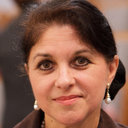Explanatory models of addictive behaviour among native German, Russian-German, and Turkish youth.
Ključne besede
Povzetek
In Germany, the public system of addiction treatment is used less by migrants with addictive disorders than by their non-migrant counterparts. To date, the literature has focused primarily on language, sociocultural factors, and residence status when discussing access barriers to this part of the health care system. However, little attention has been paid to cultural differences in explanatory models of addictive behaviour. This is surprising when we consider the important role played by popular knowledge in a population's perceptions of and responses to illnesses, including their causes, symptoms, and treatment. In the present study, we examined explanatory models of addictive behaviour and of mental disorders in 124 native German und Russian-German youth and compared these models to those observed in an earlier study of 144 German and Turkish youth. We employed the free listing technique German and to compile the terms that participating subjects used to describe addictive behaviour. Subsequently, we examined how a subset of our study population assigned these terms to the respective disorders by means of the pile sort method. Although the explanatory models used by the German and Russian-German youth in our study were surprisingly similar, those employed by Turkish youth did not make any fundamental distinction between illegal and legal drugs (e.g. alcohol and nicotine). German and Russian-German youth regarded eating disorders as "embarrassing" or "disgraceful", but Turkish youth did not. Unlike our German and Russian-German subjects, the Turkish youth did not classify eating disorders as being addictive in nature. Moreover, medical concepts crucial to a proper understanding of dependence disorders (e.g. the term "physical dependence") were characterised by almost half of our Turkish subjects as useless in describing addictions. These findings show that it is impossible to translate medical or everyday concepts of disease and treatment properly into a different language without considering the connotations and implications of each term as it relates to the respective culture. Terms that are central to Western medical models of disease may otherwise be misunderstood, misinterpreted, or simply rejected.


